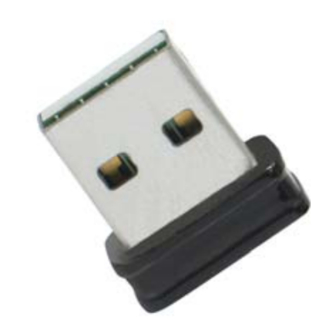Advertisement
Quick Links
Download this manual
See also:
User Manual
Wireless N 150 Ultra Mini USB Adapter
Model #: AWLL5088
Quick Installation Guide for
MAC OS X
Rev. 1.0
Advertisement

Summary of Contents for Airlink101 AWLL5088
- Page 1 Wireless N 150 Ultra Mini USB Adapter Model #: AWLL5088 Quick Installation Guide for MAC OS X Rev. 1.0...
- Page 2 1. Install Wireless N USB Adapter This section provides instructions on how to install the Wireless N 150 Ultra Mini USB Adapter. The driver is installed along with the utility. Step 1 Insert the USB adapter into an available USB port of the computer. Insert the provided CD into the CD drive.
- Page 3 Step 3 Introduction: The “Install Wireless N USB Adapter Driver” window will pop up. Click Continue. Step 4 Read Me: Read the instruction of installation. Click Continue to begin the installation.
- Page 4 Step 5 License: Click Continue. Step 6 Click Agree to install.
- Page 5 Step 7 Installation Type: click Install to perform a standard installation. Enter your password and click OK. Step 8...
- Page 6 Click Continue Installation. Step 9 Step 10 Install: Wait while the software is being installed. Step 11 Summary: Click Restart to restart your computer. Go to Chapter 2 after the computer is restarted.
-
Page 7: Connect To Wireless Network
2. Connect to Wireless Network 2.1 Enable the Wireless USB Adapter This section describes how to enable your wireless USB adapter before you can connect to a wireless network. For 10.4/10.5 MAC users: Step 1 Go to System Preferences > Network, select Network Port Configurations from Show. - Page 8 Step 2 Check the Ethernet Adaptor (Wireless N USB Adapter) and uncheck AirPort. Click Apply Now. For 10.6 MAC users: After the computer is restarted, you will see this notice popped up on your screen to inform you that you need to enable the wireless card.
- Page 9 Step 1 Go to System Preferences > Network. You should see Wireless N USB Adapter in the list, if not, please click “+” to add a new network interface.
- Page 10 Step 2 Select Wireless N USB Adapter from the Interface drop-down list and click Create. Click Apply to save the settings.
- Page 11 2.2 Connect to Wireless Network This section describes how to connect your wireless USB adapter to a wireless network. Step 1 Wireless Network Utility should automatically pop up on your screen after rebooting your computer; if not, open the Wireless Monitor utility by clicking on its icon in the system tray.
- Page 12 Step 2 Click the Available Network tab, select the SSID (Network Name) of the wireless network you wish to connect to, and click Add to Profile. If the network that you are attempting to connect does not have encryption enabled, will receive a warning about connecting to an unsecured network.
- Page 13 Step 3 Enter the network security key of your wireless router or AP into Network key and Confirm network key boxes.
- Page 14 Step 4 The connection is now established. You can check the status of your connection under “Link Status” tab. The Connection should be Connected, and there should be a blue bar displaying the Signal Strength. Congratulations! You have now successfully connected to the wireless network. You may refer to the User Manual in this Installation CD for detailed instructions of other advanced features of Wireless N USB Adapter.
-
Page 15: Technical Support
Technical Support E-mail: support@airlink101.com Toll Free: 1-888-746-3238 Web Site: www.airlink101.com *Theoretical maximum wireless signal rate derived from IEEE standard 802.11g and draft 802.11n specifications. Actual data throughput will vary. Network conditions and environmental factors, including volume of network traffic, building materials and construction, mix of wireless products used, radio frequency interference (e.g., cordless telephones and microwaves) as well as network overhead lower actual data throughput rate.











Need help?
Do you have a question about the AWLL5088 and is the answer not in the manual?
Questions and answers